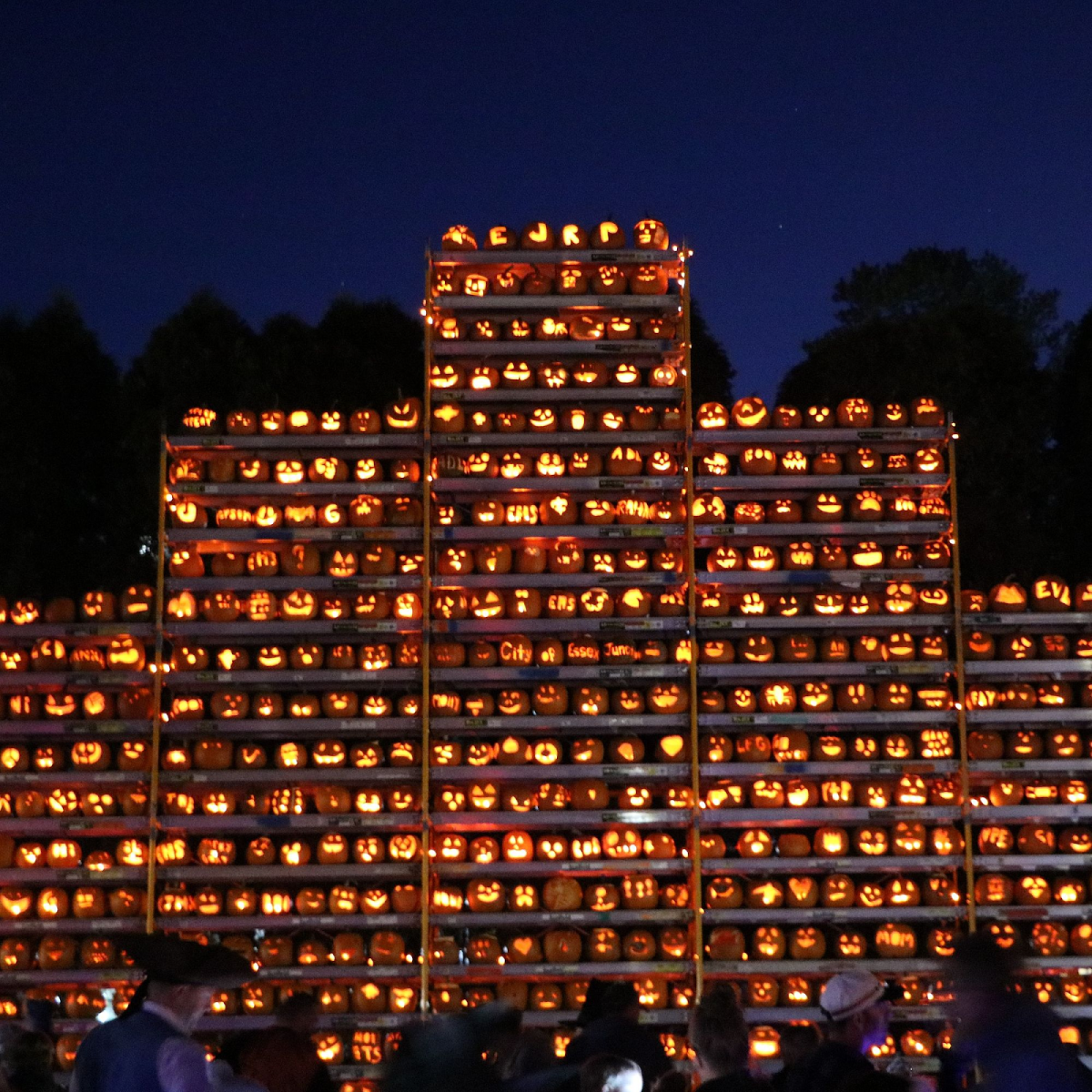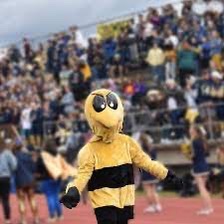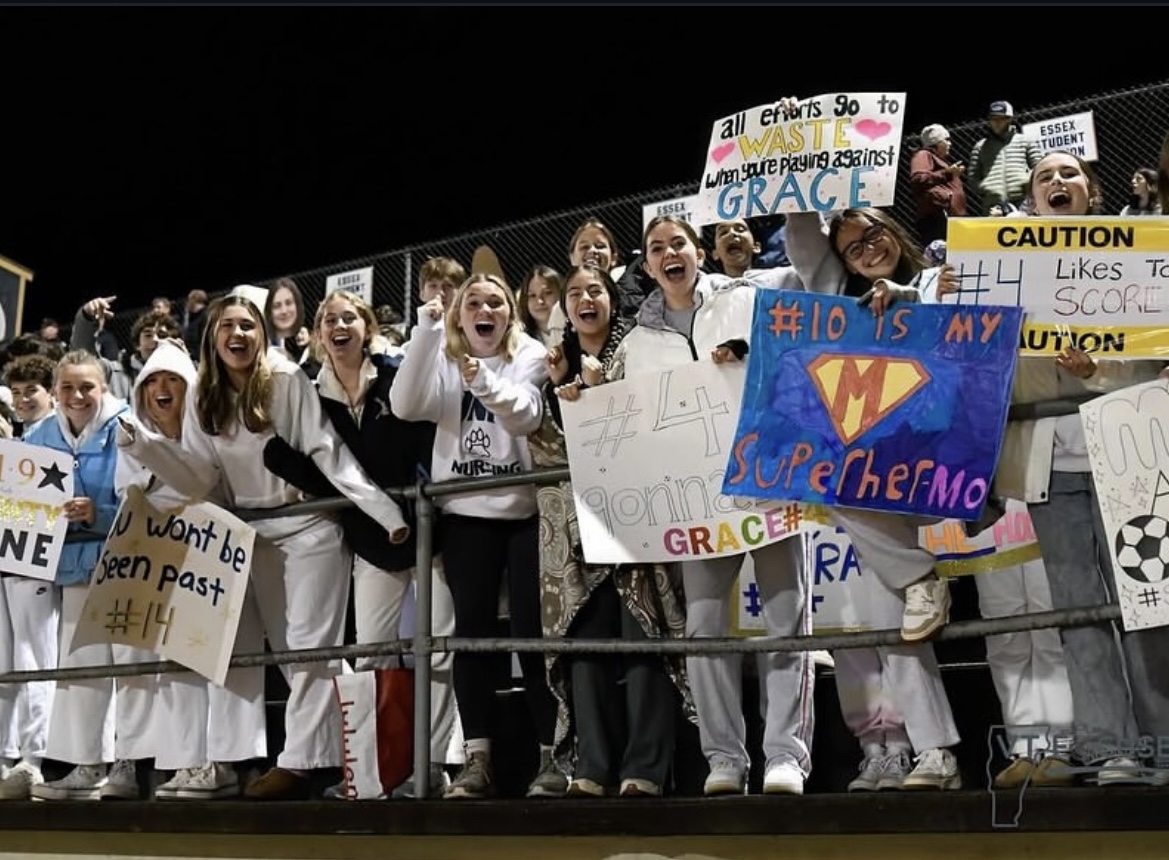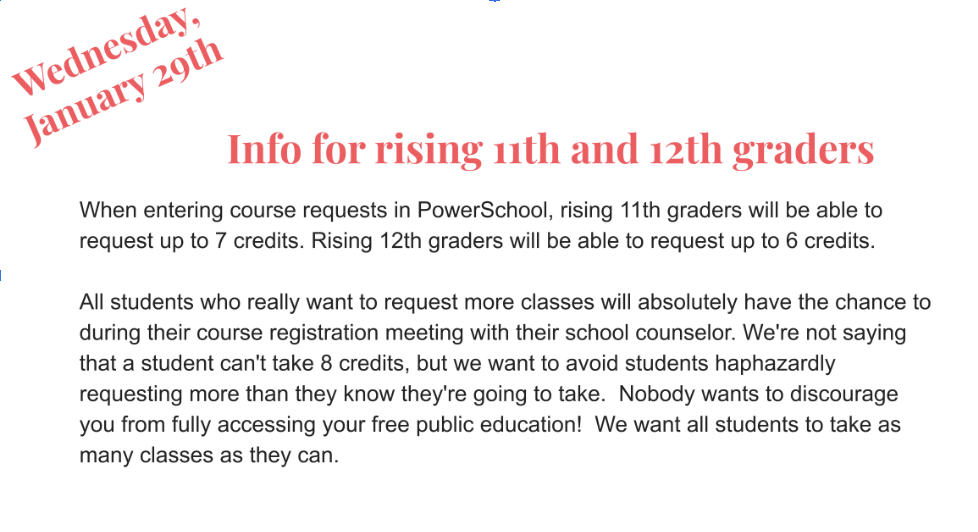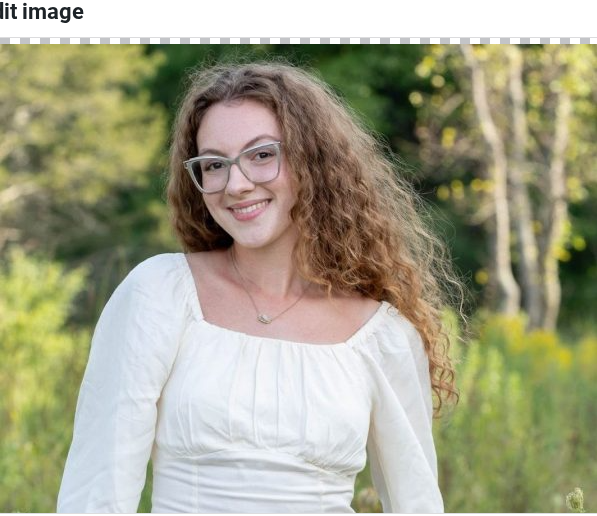EWSD School Board has two student representatives, senior Samantha Donahey and junior Pankti Desai. Student representatives do not have voting rights, but can offer the valuable student perspective.

“The board is made of 10 elected officials and the two of us,” Donahey said. “We are appointed members of the board. We were appointed by the board, each of us at the end of our sophomore year, to serve as a student rep for two terms.”
Donahey and Desai will work to select the next representative, a sophomore, later in the year and Desai will become the senior representative.
“Our role is mainly to bring a student perspective to help inform the board’s work,” Donahey said. “So while we can’t vote on decisions, we’re able to participate in discussions leading up to votes, give our input, and advise board members on how maybe they should vote or consider what things they should take into consideration when they’re deciding how to vote on something.”
Donahey offered more information about the budget proposals, first by stressing an important fact.
“Everything right now is proposed,” she said. “That’s really important for people to understand. This is just a proposal. It has not been adopted by the Board yet.”
Donahey said the budget will result in changes to the district’s quality of education. She said the board is looking to consolidate classes but that no class will exceed the maximum number of students permitted.
“I think there’s just a misconception that the board members know everything going into budget season,” Donahey said. “And yes, of course. We’re informed, and we want to be informed, but also at the same time, I do feel that we’re still learning along with the community.”
Board meetings are open to the public. At the start of each meeting, the board allows for public comments.
“Open meeting law means that we’re not having meetings about the budget that the public is not–there’s no communication that’s happening between us and the superintendent or anybody else about the budget that is not public,” Donahey said. “There’s nothing going on behind the scenes. We don’t know anything more than what the community knows.”
First, the board suggested two options when it came to crafting a proposal related to music department cuts.
“One would be: what would it look like if the budget just absorbed that cost?” Donahey said. “So if our budget increased by $695,000, which is the savings that that change would bring us, what would the impact on taxes be?”
They would then give taxpayers the option to say yes or no.
“The second thing we wanted to see was: what is something else that we could cut?” She said. “What would be next on the chopping block to save that same amount of money? Is there something else? Is there another area we can reduce and save a similar amount of money that might not be as near and dear to the community? Because we heard from the community that that’s really important, that music is really important to them, maintaining it at the same level that it’s been at.”
After receiving feedback, the board is now presenting the community with the decision to preserve funds for the music department. Their efforts are being refocused towards cutting the budget somewhere else–specifically, they are looking to the counseling department.

Along with the arts, Desai discussed how the proposed budget could impact athletics at EHS.
“Currently, there are no proposed initiatives to have students pay for athletics in any way, and there won’t be any fees if you look at the budget,” Desai said. “There’s nothing like that in athletics. The only really big change to athletics that’s proposed in the budget currently is just that we would want to organize our boosters and fundraising to more support athletics than it has in the past.”
Balancing the gap between clubs and athletics was another alternative.
“There’s also an effort to align athletics and other student activities and make them more similar,” Desai said. “Because right now, we think of it as athletics and clubs and extracurriculars, so we’re trying to align those more so there will be one person overseeing all of that, and alter it so our models are similar for how those two groups are funded and how people participate in them.”
Desai said the budget issues transcend the EWSD as a whole.
“I’d say that another thing that I’m most worried about with this budget is the future of education in Vermont,” Donahey said. “We’re in an education funding crisis right now, we’re in facilities crises. We have buildings all over the state that have so many problems, and it feels insurmountable in a lot of ways.”
There are a lot of unknowns when it comes to the future of education and it will not get easier after this tough year of budgeting.
“We want to be able to do this empathetically, and whatever the changes result in at the end of budget season, we want to make sure that the community is on board with it, even though there might be sadness there and even though there might be loss there, that it is still for the good of the community and the good of students,” Donahey said.

